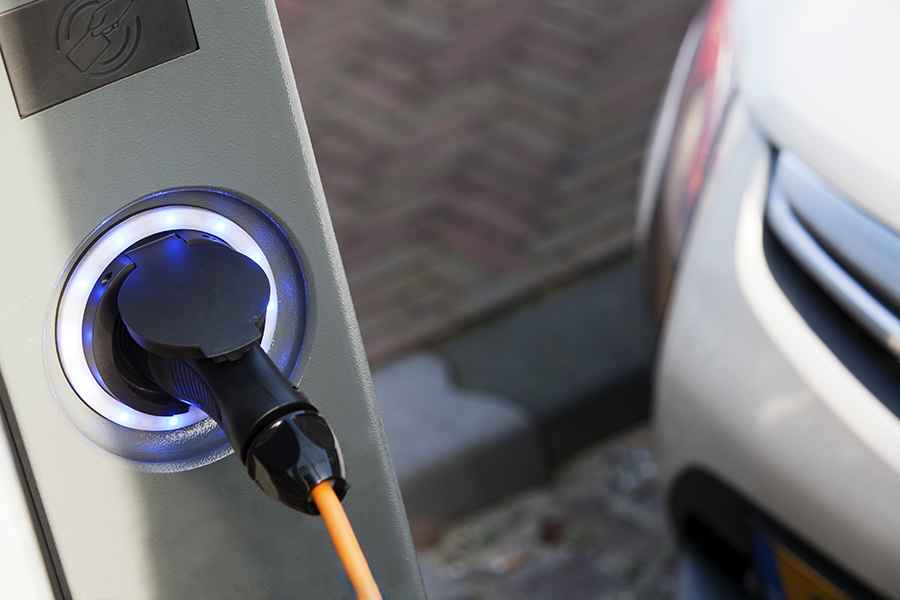What to Know About Electric Vehicle Car Insurance
Electric vehicles are becoming increasingly popular all over the globe. Several countries and leading car manufacturers have already pledged to go all-electric in the next few years.

Given the situation, it's essential to understand how car insurance works for electric vehicles. So, in this post, we'll explore the topic in detail. We will explore everything from what to consider when choosing an electric vehicle car insurance plan to the differences between electric and gas vehicle insurance policies.
Let's get started!
Things to Consider When Insuring an Electric Car
First, let's look at the factors to consider when buying an insurance plan for your electric vehicle. There are five of them to keep in mind, including:
1) Battery Coverage
Electric car batteries are expensive to replace, which means you'll need to ensure that your insurance policy covers them. Some insurance companies offer specific battery coverage, while others include it in their comprehensive coverage plan.
It's a good idea to opt for Rollin's comprehensive EV car insurance because it also covers damage from a wide range of sources, including animals, natural disasters, and theft. In any case, make sure you read the policy carefully to ensure that the battery is included.
2) Range Anxiety
Range anxiety is the fear of running out of battery power while driving. It's a real concern for many electric car owners, and it can impact your insurance policy. Good insurance policies include coverage for towing and charging assistance in case you run out of power on the road.
3) Specialized Parts and Repairs
Electric vehicles have unique parts and require specialized repairs. This means you cannot take your malfunctioning electric vehicle to just any mechanic. Instead, you’ll need to find someone who is qualified to work on electric vehicles.
This is why a good insurance policy will cover repairs from qualified and reputable electric vehicle mechanics. On the other hand, a poor insurance policy may not provide any information about the qualifications and reputation of the mechanics who will be repairing your electric vehicle. Choose a policy that offers complete transparency on the subject.
4) Charging Stations
Charging stations are facilities that provide electricity to recharge the battery of an electric vehicle. And there are three types of charging stations, including:
- Level 1: Takes 20 hours to fully charge an EV battery
- Level 2: Takes 4-8 hours to fully charge an EV battery
- Level 3 (or DC fast charging): Takes 30 minutes to fully charge a battery
As an electric car owner, you will be visiting charging stations often. And given the time they take to charge a car, there's risk of damage or theft while you’re at one.
Hence, it's best to pick an insurance plan that covers charging-station-related incidents. In this case, your insurance provider will cover the costs of the damages that occurred to your vehicle at a charging station.
5) Discounts
Electric vehicles can be more expensive to insure than traditional gasoline-powered cars. This is because of the cost of battery replacement, specialized parts, and unique repairs that electric cars require. However, some insurance companies do offer discounts on electric vehicles. So, it's best to shop around, compare all your options, and opt for a policy with the best discounts!
Electric Vehicle vs Gas Vehicle Insurance
Now that you know what to consider when buying EV car insurance, you may be wondering how it’s different from traditional car insurance. Here are four considerations to keep in mind:
1) Lower Risk of Accidents
Some studies have suggested that electric vehicles have a lower risk of accidents than traditional gas-powered cars. From a safety perspective, this is great! But from an insurance perspective, this means insurance companies may offer lower rates for electric vehicle owners compared to gas-powered vehicle owners (i.e., you will get a low compensation for the damage).
2) Higher Cost of Repairs
Although electric vehicles have a lower risk of accidents, they are more expensive to repair. Again, this is because of the specialized parts and repairs that electric cars require. Consequently, insurance policies for electric cars may be more expensive than policies for traditional cars (i.e., you will have to pay more for an EV car insurance plan).
3) Battery Replacement
On average, electric vehicles require a battery change every 10-20 years. But if there's an accident or an unforeseen issue, you'll need to spend a massive amount to fix it almost immediately. This explains why every EV car insurance plan covers battery replacement and also charges more for it.
On the other hand, battery replacement for traditional cars is a minor expenditure. So, even if it's covered in the insurance, it doesn't skyrocket the price of the plan.
4) Limited Skilled Mechanics
Not all mechanics are qualified to work on electric cars. This means that if your EV experiences a problem, you will need to take it to a specialized mechanic. At this point, some insurance companies may require proof that repairs were performed by qualified electric vehicle mechanics. This is not the case with traditional car insurance.
FAQs
Are Charging Stations Covered by Insurance?
It depends! Some policies may include coverage for damage to charging stations, while others may not. It's essential to read the policy carefully to understand what's covered.
What Is the Cost Difference Between Electric and Gas Vehicle Insurance?
The cost difference between electric and gas vehicle insurance can vary depending on the insurance company and policy. But on average, you can expect electric vehicle insurance policies to cost 10-25% more than gasoline-powered car insurance policies. But some insurance companies offer discounts for electric vehicle owners, reducing this gap.
What Specialized Training Do Electric Vehicle Mechanics Need?
Electric vehicle mechanics require training on high-voltage systems that include batteries, motors, and inverters. They may also require training in specialized tools and equipment, such as insulated gloves and voltage testers.
Image credit: Depositphotos